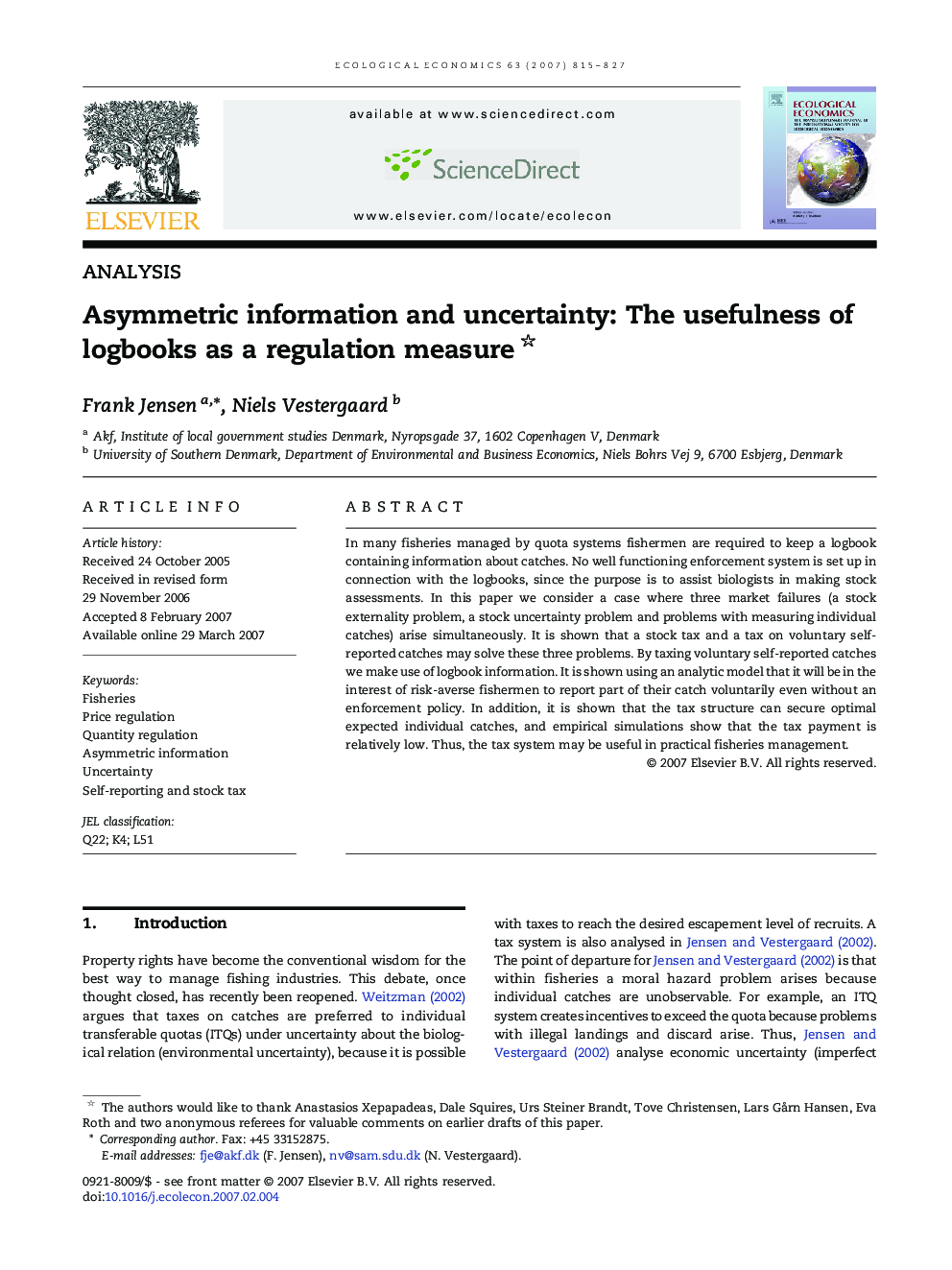| Article ID | Journal | Published Year | Pages | File Type |
|---|---|---|---|---|
| 5051876 | Ecological Economics | 2007 | 13 Pages |
In many fisheries managed by quota systems fishermen are required to keep a logbook containing information about catches. No well functioning enforcement system is set up in connection with the logbooks, since the purpose is to assist biologists in making stock assessments. In this paper we consider a case where three market failures (a stock externality problem, a stock uncertainty problem and problems with measuring individual catches) arise simultaneously. It is shown that a stock tax and a tax on voluntary self-reported catches may solve these three problems. By taxing voluntary self-reported catches we make use of logbook information. It is shown using an analytic model that it will be in the interest of risk-averse fishermen to report part of their catch voluntarily even without an enforcement policy. In addition, it is shown that the tax structure can secure optimal expected individual catches, and empirical simulations show that the tax payment is relatively low. Thus, the tax system may be useful in practical fisheries management.
